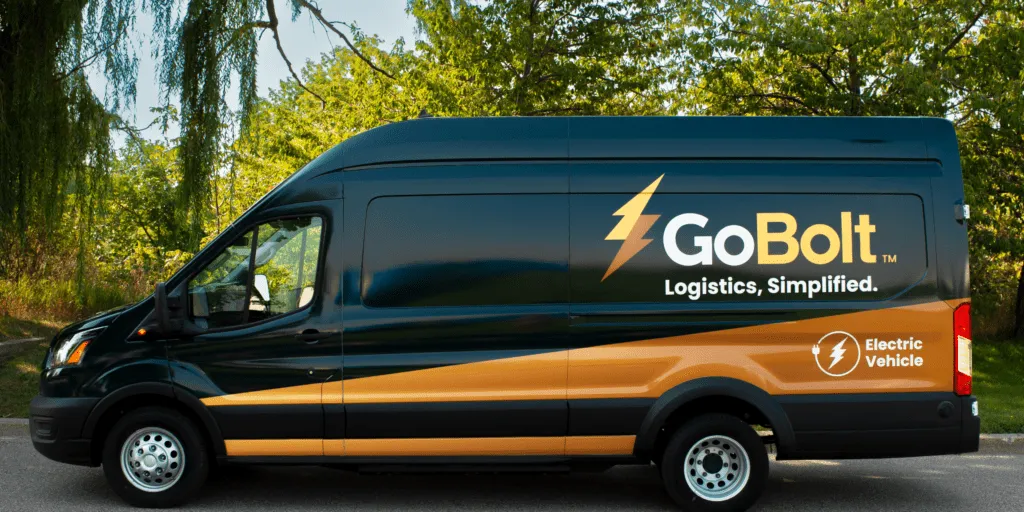This article is included in these additional categories:
In a significant leap towards sustainable logistics, GoBolt, a Toronto-based technology company building a large sustainable supply chain network, has announced notable mid-year sustainability achievements for 2024. The company’s progress underscores its commitment to environmental stewardship and innovation in the logistics industry.
Electrifying Progress: GoBolt’s EV Delivery Surge
The first half of 2024 saw GoBolt complete over 350,000 deliveries using electric vehicles (EVs), marking an impressive 484% year-over-year growth compared to 2023. This increase highlights GoBolt’s dedication to reducing its carbon footprint and leading the logistics sector’s transition towards environmentally friendly practices.
Mark Ang, Co-founder and CEO of GoBolt, emphasized the company’s vision: “GoBolt’s sustainability milestones highlight our longstanding belief that the pursuit of sustainable logistics is not just an aspiration but an achievable reality. We are redefining the benchmarks for sustainable logistics.”
Carbon Sequestration Efforts & Avoided Emissions
Beyond EV deliveries, GoBolt continues to leverage its carbon calculator and partnership with restoration platform, veritree. In the first six months of 2024, this collaboration resulted in the planting of 19,564 trees. This initiative not only enhances carbon sequestration efforts but also contributes to the restoration of natural habitats and biodiversity.
GoBolt’s sustainability measures have yielded tangible results, with the company successfully avoiding 248.33 tons of CO2 during this period. This demonstrates the real-world impact of GoBolt’s proactive approach to reducing carbon emissions in the logistics industry.
Expanding Fulfillment Network and Order Orchestration
GoBolt’s commitment to sustainability is matched by its focus on operational efficiency. The company has significantly expanded its fulfillment network, now operating in 14 locations across North America, including major hubs in Toronto, Vancouver, New York, Miami, and Los Angeles.
Central to GoBolt’s strategy is the concept of “order orchestration,” which helps brand partners streamline costs and operations.
When onboarding a new brand, GoBolt conducts a thorough review of the brand’s shipping data. This analysis provides critical insights into the geographies they ship to most frequently and the markets they predominantly service. Armed with this information, GoBolt can orchestrate the brand’s volume across its network to reduce shipping zones and costs.
By leveraging GoBolt’s strategy, brands can lower their shipping costs and get orders to their shoppers faster.
This approach allows GoBolt to offer an Amazon-like experience for its brand partners, a goal that many in the industry strive to achieve.
Future-Focused: Expanding Sustainable Practices
Looking ahead, GoBolt remains committed to expanding its sustainable practices and setting ambitious targets. Upcoming initiatives include increasing the proportion of EV deliveries, expanding into other eco-friendly delivery methods like e-bikes, enhancing energy efficiency across operations, and continuing impactful partnerships with environmental conservation organizations.
“We’re proud of our accomplishments in 2024, and we’re driven by the knowledge there’s still much more to achieve,” said Ang. “By utilizing our proprietary technology and emphasizing sustainability, GoBolt is committed to redefining the logistics landscape. Our goal is to inspire industry peers and retail partners to join us in this endeavor.”
As the logistics industry faces increasing pressure to reduce its environmental impact, GoBolt’s achievements serve as a beacon of innovation and sustainability. By demonstrating that eco-friendly practices can be successfully integrated into large-scale logistics operations, GoBolt is paving the way for a greener future in supply chain management.
Original Story at www.environmentenergyleader.com
